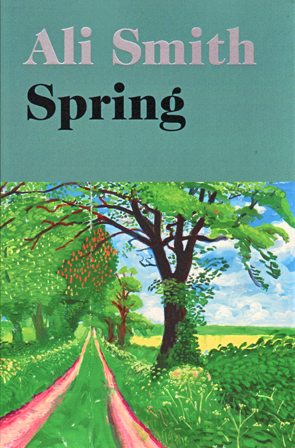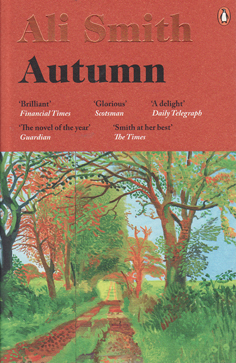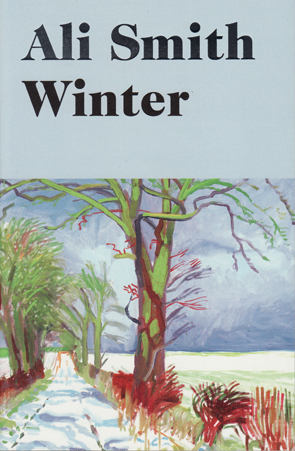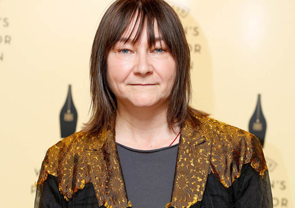Readers of Ali Smith’s Seasonal Quartet will find much that seems familiar in Spring. Brexit, national identity and the treatment of refugees remain key themes. A layered narrative, literary and art allusions, and a style that imitates the vernacular remain hallmarks of Smith’s style.
Smith addresses the treatment of refugees more vehemently and directly in this novel. Brittany Hall (her name is an obvious connection to Britain, which the book makes explicit) is a SA4A officer at an Immigration Removal Centre (IRC). Refugees fleeing war and other atrocities are kept interred for years at a time in the IRC in circumstances that were only ever meant to house detainees for 72 hours. Brittany is part of a professional culture that degrades and dehumanises the people they are meant to protect. But when a young girl somehow enters the centre, bypassing all its security apparatus, Brittany is intrigued. The girl manages to persuade management to clean the toilets properly for the first time, then disappears. Later, there is a rumour she entered a sex house and persuaded its owners to set free the women who have been virtually enslaved there. The girl, Florence Smith, seems to have powers of persuasion akin to a Jedi.
The other half of Smith’s narrative concerns Richard Lease, a film-maker seeking to return to his profession after a hiatus. He has lost his long-term professional colleague, Patricia (Paddy) Heal, and now seeks direction as he meditates upon the meaning of their creative legacy and purpose. Richard has taken himself to a railway station in Scotland, where he will cross paths with Brittany and Florence. Florence has enticed Brittainy to accompany her on a journey to find a location in Scotland using a picture she carries to find it.
As in the previous seasonal novels, Spring is a deceptively light read. There is a cumulative effect on the narrative from repetitions of seemingly minor moments, deploying allusions and motifs in different circumstances and forms, from which a political voice emerges. Smith’s technique is best explained with an example. When Richard, for instance, attempts to buy a drink from what he presumes is a coffee van in Scotland, he is told there is no stock. He questions the point of it being open, and the owner responds, Fresh air
. It’s a small moment that attentive reading later rewards. The coffee van woman, as it turns out, is Alda, a member of the Auld Alliance, an underground group dedicated to helping refugees escape or avoid detection. At another moment in the novel a refugee in the IRC asks Brittany, What is it like to breath real air?
, thereby associating fresh air with freedom. Florence keeps an exercise book given to her by her mother – ‘Your Hot Air Book’ – in which someone, presumably her mother, herself a refugee, has written, RISE MY DAUGHTER ABOVE
. The message is clearly aspirational. The novel continues this motif in sections which speak with an abstract voice. One of those voices, which I think of as nature or Spring, discusses the work of the artist Tacita Dean. Dean not only produced monumental works depicting mountains, she also used a hot air balloon to film her efforts to use a ‘cloud bag’ to collect pure clear air
. One of her chalk works, Why Cloud, 2016, is reproduced on the inside back cover. An extract from Percy Shelley’s poem, ‘The Cloud’, is also quoted to suggest the regenerative power of nature. And the same detainee who asked What is it like to breath real air?
lies on his back in the IRC so he can watch clouds.
The cumulative effect of the motif – fresh air and clouds – is complex. First, there is dichotomy between interior/exterior space, and free/not free; an association that recalls the conditions of detainees and their political plight. Second, there are associations with abstract regenerative voice of nature that disrupts the narrative, used like a chorus in an old play, speaking of the underlying power of Spring:
The plants that push up through the junk and the plastic, earlier, later, they’re coming, regardless. The plants shift beneath you regardless, the people in sweatshops, the people out shopping, the people at desks in the light off their screens or scrolling their phones in the surgery waiting rooms […] the people on motorways speeding past verges and scrubland like nothing is happening. Everything is. The flowerheads open all over the flytip. The light shifts across your divides, round the people with passports, the people with money, the people with nothing, past sheds and canals and cathedrals, your airports, your graveyards, whatever you bury, whatever you dig up to call it your history or drill down to use up for money, the light shifts regardless.
The truth is a kind of regardless.
Nature, itself, is an absolute and the cycle of the seasons unstoppable, while human power is hubristic. In this way Smith provides us with a wider platform from which to view current political trends that employ the worst of human nature – xenophobia, exclusion, othering – and the tools by which political repression operates: in this case, the refugee detention system. But Smith casts her net wider than that. Implicit in her Spring motif is that extreme politics also is seasonal, and that leaders like Trump carry the seeds of their own demise. Paddy tells Richard:
I look at Trump now, I see them all, the new world tyrants, all the leaders of the packs, the racists, the white supremacists, the new crusader rabble-rousers holding forth, the thugs all across the world, and what I think is, all that too too solid flesh. It’ll melt away, like snow in May.
It’s unfortunate for me to have been reading this book now, just over a year after it was published, since in the last few weeks Trump told Americans that the Coronavirus will just disappear in Spring like a miracle. In that context, Smith’s politics may seem equally naïve. But Ali Smith’s writing utilises a wider cultural and historical base than Trump, and is art in the service of the unenfranchised, not spin-doctoring in the service of politics. Her voice is employed to reveal, not conceal mendacity. To this end her narrative constantly suggests a tension between surface and depth, between the romanticised and the real. The battlefield of Culloden, which becomes the ultimate destination of Brittany, Florence and Richard, is scenic in its green fields, the stone hut that still stands there and the memorial cairn. And the history is sufficiently distant to evoke nostalgia for old times. But as Alda points out, the place is a part of a history much like the present: The systematic controlling of peoples by other peoples […] The fight, the destruction, the defeat.
This notion is implicit in other seemingly unrelated aspects of the novel. For instance, Richard is tasked with overseeing the adaptation for screen of a novel based upon the lives of Rilke and Jane Mansfield. His scriptwriter is determined to turn the story into a romance, despite the fact Mansfield was dying of tuberculosis during the period in which she is meant to be having a torrid affair with the poet; a man whom she only came in close proximity with and did not know. Likewise, the appropriation of refugee status to define a clothing fashion – refugee chic – is equally mendacious in its cynicism and callousness. Florence is confused by its suggested glamour.
Implicit in this is the notion that power resides not only in the ability to physically restrain, but also to define; the ability to control a story. Florence refuses to reveal personal details about herself to Brittany because she knows this. Richard is rightly suspicious of security cameras because they show nothing beyond the surface. Brittany refuses to engage with a referendum interviewer because she sees her answers will only contribute to a national debate which is divisive. Florence underlines the problem succinctly: when asked to tell a bit about herself in front of a crowd she refuses: …that’d be the first step towards me vanishing altogether […] Because as soon as you all hear me say anything about myself, I’ll stop meaning me. I’ll start meaning you.
This is a part of the process of othering, which transforms people into refugees and refugees into political pawns. It’s not only part of the story of Brexit, but of the world right now.
As in the two previous books, Spring has allusions to many texts. Spring makes allusions to Shakespeare and Dickens, as do Autumn and Winter. Paddy, Richard’s one-time lover, calls him ‘Doubledick’ throughout their working relationship. He imagines it has something to do with his sexual prowess. Eventually, she explains that it is a reference to Charles Dickens’s story ‘Tale of Richard Doubledick’, who unwittingly marries into the family of a man he is sworn revenge against. Richard, wondering what Doubledick does, is told, …what he does is why this story is so great. He lets go of the bitterness. He decides to let bygones be bygones.
And that is why Spring is so great. Smith is no ingenue wistfully hoping for a better world. She is a mature writer in control of her narrative and her imagery, and fully understanding the choices people have to make right now. She sees the darkness, yet her novel still embraces hope, and trusts that a better world might emerge if others make that same choice. This book and its predecessors are highly recommended.
Related Books Reviewed on this Website:

 RSS Feed
RSS Feed Facebook
Facebook Instagram
Instagram YouTube
YouTube Subscribe to our Newsletter
Subscribe to our Newsletter






No one has commented yet. Be the first!